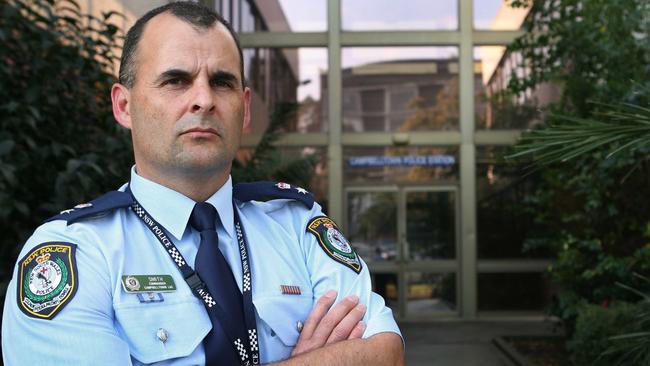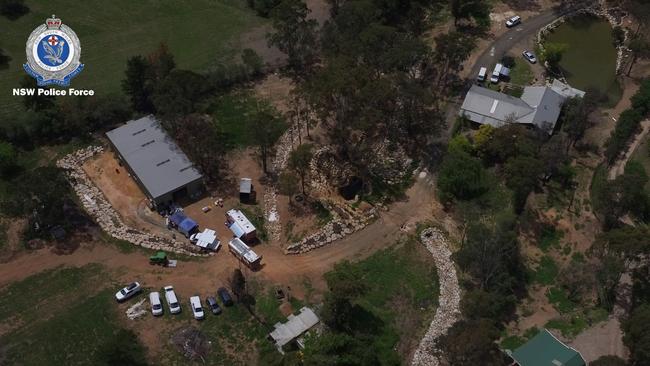Blood tests after festival overdoses used to trace kingpins
Toxicology results of partygoers who overdose at music festivals are being used by police for “drug mapping” — hunting down the kingpin dealers cashing in on the deadly drugs.
Blood samples from revellers who overdose at dance festivals are being used to track down the drug kingpins making the deadly pills.
The State Crime Command chemical operations unit has been called in to carry out “drug mapping” following a spate of deaths and serious overdoses at dance parties this summer.
Because every batch of illegal pills carries unique chemical traces, blood and urine tests from overdose victims can help identify the clandestine laboratories where the drugs were made.
Toxicology results from anyone who dies or is hospitalised due to drug use can also be linked to chemical analysis of pills seized from dealers at dance festivals, identifying who sold them the drugs.

MORE NEWS
Inside Sydney’s new maximum security female jail
High-rise property boom heads to regional NSW
Cricket WAGs welcome Lyon’s new love
Detectives then target that specific dealer, investigating their supply chain and hopefully tracking it back to the factory where the drugs were produced. It also allows them to identify whether pills from the same laboratories contributed to deaths or overdoses at other dance festivals.
This can then be used when prosecuting criminals involved in the drug supply trade to argue that they have been particularly reckless with regard to the lives of their customers.
A first in the war on drugs, the move follows the recent Defqon. 1 festival in Penrith where two people died. Police said several mid-level drug dealers there had connections to outlaw motorcycle gangs.

With top-level suppliers flooding the festival scene this year, the move has won the backing of Police Commissioner Mick Fuller and Premier Gladys Berejiklian, who are resisting pressure to implement pill-testing at music events.
In a rare move, the Drugs and Firearms Squad has been brought into the mix to assist local or regional police who traditionally carry out security operations at dance events.
SCC commander acting Assistant Commissioner Stuart Smith said: “It’s a ramp up in relation to our participation in the Premier and (Police) Commissioner’s working party in response to dance party deaths,”

Police, whostressed personal details were not included in the toxicology results, hope the complex drug mapping will create a picture of the festival supply chain and lead them to the major players.
“We have never done such in-depth work around identifying the source,” Mr Smith said.
“Our job is to take out the commercial enterprise sitting behind the illicit drug trade at dance festivals.”
It is understood that in the past year the Drugs and Firearms Squad has shut down three drug labs producing MDMA used in ecstasy, including a huge operation in a backyard shed at Mount Hunter, near Camden, in November.


Pills made at that site were seized at the Defqon. 1 dance party in September, where Joseph Pham, 23, and Diana Nguyen, 21, died from overdoses.
There have been two other dance festival deaths this summer. Callum Brosnan, 19, died after the Knockout Games of Destiny Dance Party at Olympic Park on December 8 and then on December 29, Brisbane manJoshua Tamdied from an overdose at the Lost Paradise music festival at Glenworth Valley, near Gosford.
It is understood all four victims had more than one type of drug in their system.
Mr Smith said 84 drugs labs were busted last financial year, a significant increase that coincided with an increase in demand for MDMA.

“The dance festivals are growing at a huge rate. Once upon a time we would see five or six in a year but these things are now travelling road shows around the world,” he said.
NSW Premier Gladys Berejiklian has opposed calls to legalise pill testing at festivals, claiming it created a false sense of security.
Commissioner Fuller said in October the argument that pill testing would save lives was a myth, while other senior officers have said the issue is a matter for government.
Professor of criminology Fiona Measham, whose organisation The Loop promotes pill testing in the UK, presented her argument to senior officers at the State Crime Command in Parramatta during a visit last year.
Following a pill testing pilot in Britain, she said one in five people got rid of their drugs if the test showed contaminants and two in five took a lower dosage if the test showed the pill was of high strength.
Originally published as Blood tests after festival overdoses used to trace kingpins

